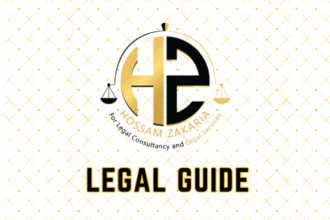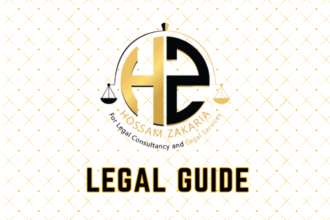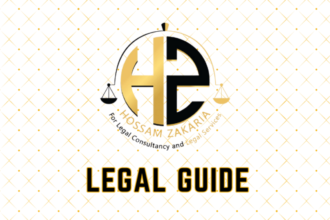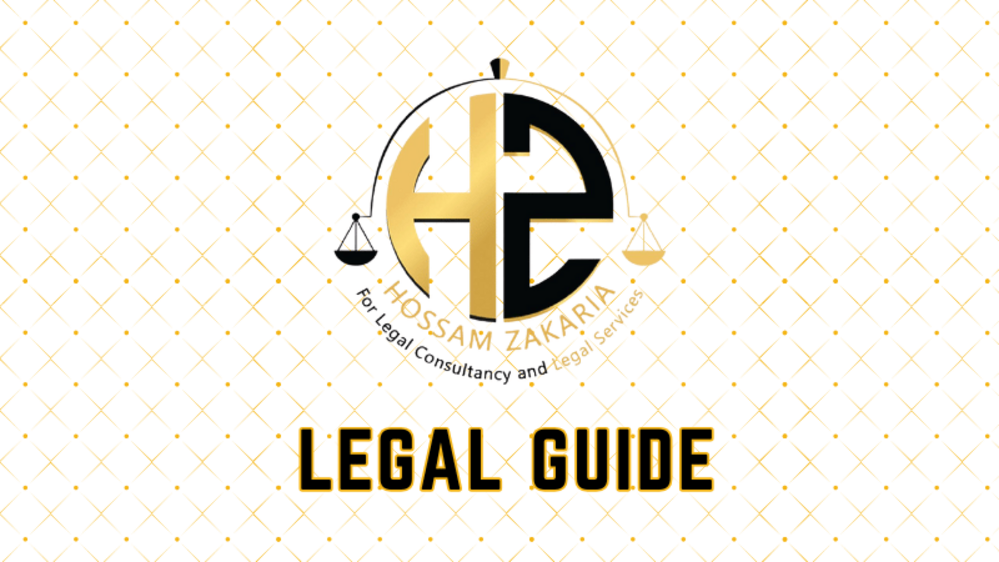Introduction
In the rapidly evolving landscape of the United Arab Emirates (UAE), the enforcement of loan agreements and security instruments is witnessing significant legal transformation. Recent years, particularly the transition into 2024 and 2025, have been marked by wide-ranging legislative reforms aimed at aligning the UAE’s financial sector with international best practices, improving creditor protections, and bolstering investor confidence. For businesses, executives, and legal practitioners, understanding the nuances of these changes is not just a regulatory necessity—it is a cornerstone of risk management and commercial success.
This article offers an expert, consultancy-grade analysis on navigating the updated legal framework for enforcing loan agreements and security interests in the UAE, highlighting recent statutory revisions, procedural shifts, and compliance imperatives issued by official bodies such as the UAE Ministry of Justice and detailed in the Federal Legal Gazette. The information herein provides actionable guidance tailored for organizations, financial institutions, and professionals operating in or with the UAE financial markets.
Table of Contents
- Overview of the New UAE Legal Landscape for Loan Enforcement
- Key Legal Updates and Their Implications
- Security Instruments Under the 2025 Regulatory Framework
- Practical Enforcement Mechanisms in the UAE Courts
- Comparing the Old and New Enforcement Regimes
- Case Studies: Illustrative Scenarios
- Risks of Non-Compliance and Strategic Compliance Guidance
- Conclusion and Forward Guidance for UAE Businesses
Overview of the New UAE Legal Landscape for Loan Enforcement
The Legislative Context
The UAE’s financial regulatory framework has undergone robust advances with the introduction and amendments of cornerstone laws such as:
- Federal Decree-Law No. 14 of 2020 on Securing Rights in Movable Assets (as amended by subsequent resolutions, including Cabinet Resolution No. 29 of 2021) — fully operationalized in 2024-2025, transforming security, registration, and enforcement of movable collateral.
- Federal Law No. 18 of 1993 on Commercial Transactions (as amended by Law No. 50 of 2022) — refinements to cheque enforcement, digital signatures, and the treatment of default.
- Federal Decree-Law No. 42 of 2022 — Civil Procedures Law, streamlining dispute resolution, summary proceedings, and execution mechanisms.
Recent amendments redefine procedural timelines, documentation standards, and the mechanisms for judicial and extrajudicial enforcement. Notably, greater digitalization and alignment with international conventions (such as the UN Convention on the Assignment of Receivables) enhance certainty and cross-border enforceability. Official resources: UAE Ministry of Justice and UAE Government Portal.
Why the Updates Matter
As financial intermediation grows more sophisticated, both lenders and borrowers require clarity on their rights and obligations regarding loan agreements and the applicable enforcement routes for secured transactions. With the new reforms, stakeholders face new documentation rules, revised timelines for enforcement, and stricter penalties for procedural errors—elements critical for structuring effective compliance programs and reducing financial and reputational risks.
Key Legal Updates and Their Implications
1. Federal Decree-Law No. 14 of 2020 and Its Implementation
This landmark legislation and its successive amendments modernized security over movable assets and established a public register for secured rights. Key takeaways include:
- Wider Scope: Coverage now extends beyond traditional commercial debts to include a broad class of movable assets (inventory, accounts receivable, equipment, intellectual property).
- Priority Rules: Enhanced clarity on priority of claims based on time and manner of registration with the Emirates Movable Collateral Registry.
- Direct Enforcement: In many cases, the right to enforce against collateral without prior court intervention, subject to clear contractual provisions.
- Summary Proceedings: Streamlined executive procedures for enforcement in case of default, especially where formal registration or notarization is in place.
Consultancy Insight: Lenders should ensure precise drafting of security agreements and prompt registration with the public registry to secure priority and minimize disputes.
2. Federal Decree-Law No. 50 of 2022 Amending the Commercial Transactions Law
- Cheque Enforcement: Further refinement to the bounced cheque regime, emphasizing digital evidence and summary execution against dishonored cheques.
- Reinforced Good-Faith Standards: Borrowers have greater statutory protection against abusive enforcement provided they meet disclosure and documentation obligations.
- Electronic Contracting: Full recognition of electronic signatures and contracts, providing a faster path to enforcement.
Practical Consideration: All documentary evidence should be contemporaneously created and retained, with digital backups recognized as valid by UAE courts.
3. Civil Procedures Law – Federal Decree-Law No. 42 of 2022
- Summary Judgment: Expanded scope for summary enforcement actions in clear debt cases, such as loan defaults documented by registered security agreements or cheques.
- Judicial Discretion: Judges empowered with flexibility to order provisional measures (freezing orders, interim relief) and to manage execution process swiftly.
- Electronic Filing: Mandated e-filing, electronic notifications, and digital hearings across the UAE on enforcement-related matters.
Professional Tip: Legal teams should master court e-service systems and monitor timelines obsessively, as delays or missteps could lead to dismissal or status loss of a secured claim.
Security Instruments Under the 2025 Regulatory Framework
Classification and Registration Requirements
The revised framework under Federal Decree-Law No. 14 of 2020 delineates the following principal security instruments:
- Pledge of Movable Assets: Allows direct registration and third-party enforceability; priority based on registration date.
- Assignment of Receivables: Receivables (including future claims) can be assigned and registered, giving lenders first-priority access to incoming cash flows.
- Mortgages Over Intellectual Property: Now possible to register mortgage rights on trademarks, patents, and copyrights as security for loans.
- Traditional Fixed and Floating Charges: Still available for larger, structured financing with registration providing public notice and orderly priority.
Requirements for Validity and Enforceability
- Written Agreements: Security agreements must be clearly worded, with detailed asset description and lender rights (preferably bilingual—Arabic and English).
- Registry Filings: Register all interests with the Emirates Movable Collateral Registry and relevant IP registries or land departments for maximum enforceability.
- Clear Enforcement Provisions: Contracts should specify out-of-court enforcement rights, timelines, and notice protocols in compliance with Federal Decree-Law No. 14 of 2020 and related Cabinet Resolutions.
Placement Suggestion: Visual Flow Diagram of the Collateral Registration and Enforcement Process in the UAE – recommended here for clarity.
Practical Enforcement Mechanisms in the UAE Courts
Summary and Executive Procedures
Following the 2022 updates to the Civil Procedures Law and the new execution system within the federal and emirate-level courts, enforcement now commonly proceeds as follows:
- Default Notice served—required by the underlying contract and often a legal precondition.
- Application for Execution through the court’s electronic case management system, accompanied by original loan documents, security registration proofs, and correspondence:
- Commercial cheques, registered pledges, and electronic contracts allow for executive cases—fast-track procedures where defenses are limited.
- Summary Orders and Provisional Measures such as asset freezing, travel bans, or receivables redirection, pending full judgment or sale of collateral.
- Asset Liquidation or Assignment, usually via public auction or private sale subject to judicial supervision.
Strategic Commentary: In well-prepared cases with registered security and precise documentation, practical enforcement against collateral can occur within weeks, not months, dramatically enhancing recovery prospects for lenders.
Handling Cross-Border Assets
New rules expedite recognition of UAE judgments and enforcement acts in select foreign jurisdictions and, conversely, facilitate foreign creditors’ recourse in UAE courts. Proper contract drafting for jurisdiction, governing law, and enforcement is paramount.
Comparing the Old and New Enforcement Regimes
It is instructive to contrast the previous enforcement model with the post-2021 comprehensive reforms. The table below synthesizes the primary changes affecting lenders, borrowers, and legal practitioners:
| Aspect | Old Regime (Pre-2021) | New Regime (2021–2025) |
|---|---|---|
| Scope of Collateral | Mostly limited to tangible assets, inventory, and cheques. | Expanded to movable assets, IP, future receivables, digital assets. |
| Registration System | Fragmented, paper-based filings, often at local courts. | Centralized, digital, real-time registration via Emirates Movable Collateral Registry. |
| Priority Mechanism | Ambiguous, disputed priorities common. | Priority based on registration timestamp, clear rules, public transparency. |
| Enforcement Process | Court-driven, lengthy, multiple hearings required. | Executive (summary) procedures, out-of-court options if pre-stipulated. |
| Recognition of E-Documents | Limited recognition; originals usually required. | Full recognition of electronic contracts, signatures, and digital evidence. |
| Punitive Measures | Formal criminal liability for bounced cheques. | Greater focus on civil enforcement and administrative penalties. |
Placement Suggestion: Compliance Checklist Table – Steps required for fully compliant security registration and enforcement under 2025 UAE Law.
Case Studies: Illustrative Scenarios
Case Study 1: Securing a Corporate Loan with Receivables in 2025
A UAE-based trading company secures a loan of AED 10 million using present and future receivables as collateral. The security agreement, duly registered with the Movable Collateral Registry, specifies direct enforcement in event of default. Upon default, the lender issues notice, invokes summary execution, and receives court approval within three weeks to collect directly from the company’s customers—a speed and legal certainty unmatched under the prior regime.
Case Study 2: Enforcement of a Cheque under the New Law
An SME issues a post-dated cheque, which bounces due to insufficient funds. Under Federal Decree-Law No. 50 of 2022, the lender immediately files an executive claim through the court’s digital portal. The court freezes the debtor’s bank accounts and directs recovery from available assets, removing the criminal penalty exposure for the drawer but providing prompt civil redress.
Case Study 3: Cross-Jurisdictional Enforcement for a Foreign Lender
A Swiss financial institution finances a UAE subsidiary. The security interest, governed by UAE law and registered in the Emirates Registry, is enforced directly in the UAE courts upon borrower default—recognized under new reciprocal execution protocols.
Risks of Non-Compliance and Strategic Compliance Guidance
Principal Risks
- Loss of Priority: Failing to register interests promptly may subordinate a lender to other secured parties.
- Documentary Deficiencies: Unclear or deficient security agreements can lead to procedural delays or failed enforcement actions.
- Jurisdictional Missteps: Omission of appropriate governing law, dispute resolution, or extraterritorial enforcement clauses complicates cross-border recovery.
- Procedural Breaches: Missed deadlines, incomplete e-filings, or defective notices can result in dismissal or loss of asset freezing rights.
Compliance Strategies for UAE Organizations
| Step | Recommended Action |
|---|---|
| Contract Drafting | Ensure clarity in collateral description, enforcement rights, and dispute forum selection; always bilingual. |
| Registry Filings | Register interests with Emirates Movable Collateral Registry and update for material changes or assignments. |
| Due Diligence | Conduct thorough pre-financing searches and periodic audits of registry entries to prevent unauthorized subordinations. |
| Digital Integration | Utilize digital archiving and e-signature systems recognized by UAE courts to future-proof documentation. |
| Training & Monitoring | Institute regular legislative update briefings and compliance checklists for all finance, legal, and executive teams. |
Professional Recommendation: Proactive legal audits and digital compliance are essential to exploit new efficiencies and minimize exposure to priority disputes or enforcement delays.
Conclusion and Forward Guidance for UAE Businesses
The transformation of the UAE’s regulatory regime for enforcement of loan agreements and security instruments brings clarity, efficiency, and international alignment to the local market. Businesses must adjust by embedding best practices in documentation, registration, and digital processes. Legal departments and external counsel play an increasingly strategic role in mapping compliance frameworks to evolving federal decrees and Cabinet resolutions.
Looking ahead, the UAE is poised to remain a hub for secured finance, but stakeholders must keep pace by cultivating a culture of continuous legal vigilance, robust system adoption, and expert advisory engagement. With new avenues for direct enforcement and advanced digital integration, the coming years offer an environment primed for secure, dynamic growth—provided compliance remains front and center.
Best Practice: Organizations should routinely consult with specialists versed in the updated UAE legal framework, leverage digital tools for registration and monitoring, and treat compliance as a dynamic, board-level priority.



